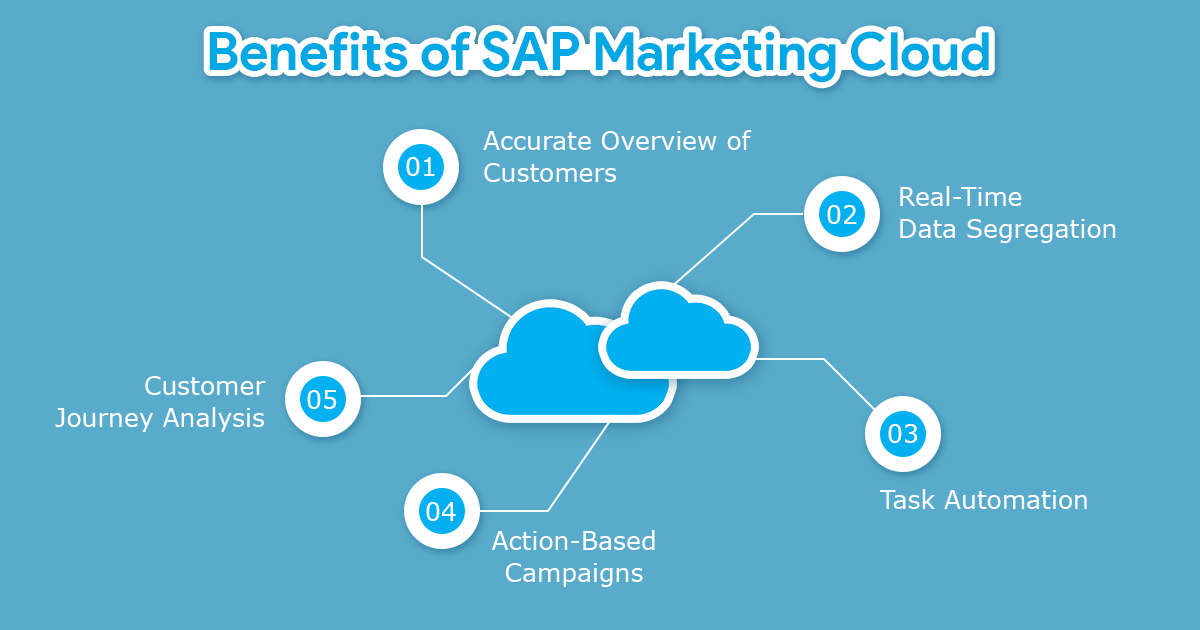The COVID-19 pandemic has disrupted businesses and pushed performance benchmarks for most businesses. Conventional marketing efforts are not sufficient these days to yield desired results in sales. Enterprises need to develop a deeper understanding of consumer tastes and preferences. For this, they need to have data on consumer preferences, purchase history etc. Most importantly, businesses should be able to maintain consistency of service across various touchpoints in their interaction with a brand.
Let us also remember that positive consumer experience is a strong point of influence for repeat sales, new lead referrals, and lower churn rates.
One of the main reasons for the failure of traditional marketing campaigns is that consumers expect a personalized experience that presents the right product at the right time in the buying cycle.
According to Forbes, 76% of customers are eager to return to stores. However, experts believe there is no future for brick-and-mortar retail. They think businesses need to cater to the needs of customers by designing personalized experiences, such as curbside pickup.

Why SAP Marketing Cloud?
The SAP Marketing Cloud provides businesses with a comprehensive 360° view of each of their customers, including their intentions and requirements. Relevant customer behavior is recognized and tracked in real-time using context-based marketing, and the associated purchase intentions are recorded across all channels. The SAP Marketing Cloud uses this data to constantly update the all-around profile of existing and potential customers.
Information such as past buying behavior of individuals, prediction of possible future buying behavior as well as focused interests is included. SAP Marketing Cloud can provide you with a detailed account of a consumer’s shopping behavior, including preferred location, apps etc. It can also help predict if a customer is likely to call customer support for any help.
How Does SAP Marketing Cloud Work?
The targeting tools of SAP Marketing Cloud help the marketing team reach out to customers via personalized one-on-one campaigns on the website, by email, digital advertisements, by phone, or via push messages on mobile end devices. This provides customers with a customized and consistent, topic-relevant experience while responding proactively to their needs. Real-time information on the feedback of marketing efforts also allows the business to respond flexibly to changes in the market. The accurately tailored product offers, and recommendations can lead to a more positive customer experience and thus to greater customer loyalty and growth in sales numbers.
The SAP Marketing Cloud does the following.
- Consolidates data sources and automates related workflows. Distributed data silos and excel workbooks are done away with while marketing teams are handed a uniform database that uses both master data and interaction data to specifically address customers, contacts, and prospects. Everything gets automated- campaign processes, customizations, predictive analysis, recommendations, etc.
- The marketing department also automatically supports the sales department by transferring qualified leads directly into the SAP CRM or the SAP Sales Cloud.

- A collective and accurate overview of all customers.
- Real-time data segregation and handing in the same into the relevant marketing funnel.
- Automation of lead-pass and task creation using standard integration with SAP CRM and S/4HANA.
- Trigger time-based or action-based campaigns that respond to multiple customer interactions eg: A follow-up message if a particular email is opened.
- Analysis of the customer journey to improve the strategy of approaching him/her.
In today’s hyper-connected world, every customer interaction matters, therefore, it pays to personalize and manage competitive buyer journeys across all channels. SAP Marketing Cloud offers the best tools to understand your customers. However, you need a reliable partner to take full advantage of these tools. Gemini Consulting & Services can customize SAP Marketing Cloud for your business and help you increase sales volumes. Contact us to know how our solutions can fuel your business growth.
Integration of SAP Marketing Cloud with SAP Sales Cloud
The SAP Marketing Suite integrates seamlessly into the SAP Customer Experience portfolio consisting of the SAP Commerce Cloud, the SAP Sales Cloud, and the SAP Service Cloud. The application can be deployed both in the cloud and on-site.
The objective of integrating SAP Marketing Cloud and SAP Sales Cloud is that SAP Marketing Cloud provides a refined waterfall type segmentation prototype of prospects. These can be classified and specified through unique standards and channelized for follow-up accordingly. Businesses using web-based channels will be highly benefited from the commercial features of the SAP Marketing Cloud.
The integration helps in increasing conversion rates due to sharing the same business partner, data, and objectives. It benefits businesses by revamping potential clients into real prospects who can be effectively nurtured from there. SAP Marketing Cloud reduces the cost related to platform integration as it is already a centralized platform. Post-implementation can enhance the ability of the business to make the most of marketing analytics to uncover new opportunities while working on the team’s efficiency and productivity.
Above everything, an integrated SAP environment helps the business build a stronger customer base with increased customer satisfaction and loyalty with the help of consolidated dashboards and real-time reporting for faster decision-making.
Personalized Buyer Journey
The importance of cutting-edge digital technology that can be harnessed to drive personalized buyer journeys cannot be more emphasized. Brands such as SAP offer a robust feature-rich suite of cloud-based applications that can be leveraged to improve shopper experiences.
SAP Marketing Cloud offers hundreds of features to help brands plan and execute targeted marketing communication right from email marketing to sophisticated cross-channel campaign management. Machine learning capabilities of such applications allow businesses to continuously adapt and improve the customer journey, keeping context and content relevant and driving positive engagement.



